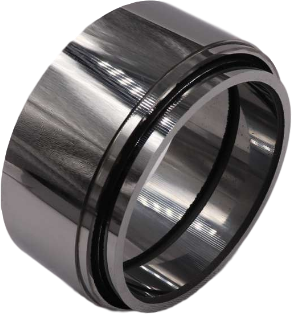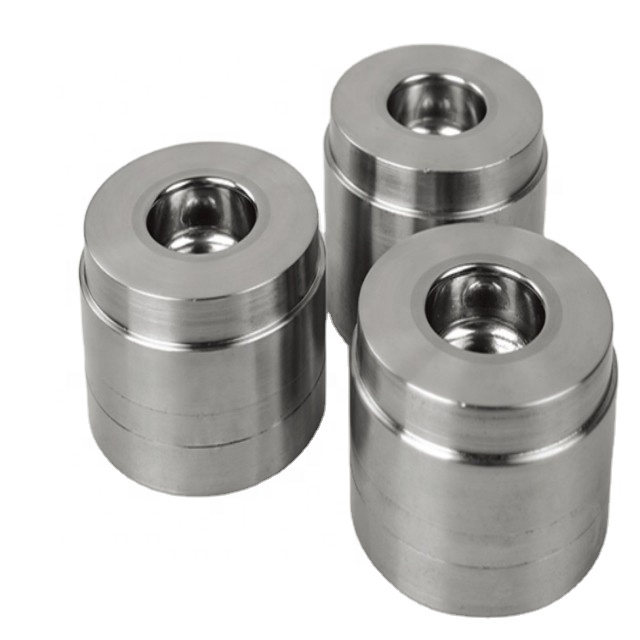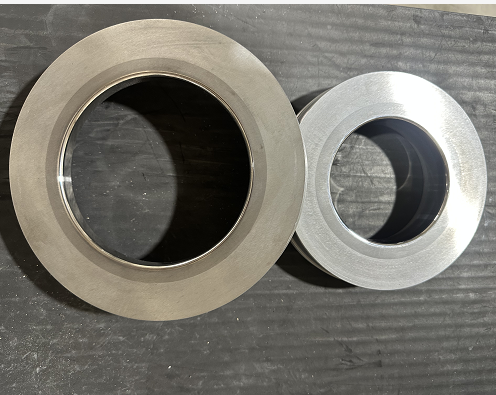Industry News
-

Application of tungsten carbide in medical devices
Tungsten carbide is an extremely hard, corrosion-resistant material, so it is also widely used in the manufacture of medical devices. Here are some common applications: 1. Surgical instruments: Tungsten carbide is widely used in the manufacture of surgical instruments because of its excellent har...Read more -
Difference between tungsten alloy and cemented carbide
Although both tungsten alloy and cemented carbide are a kind of alloy product of transition metal tungsten, both can be used in aerospace and aviation navigation and other fields, but due to the difference of added elements, composition ratio and production process, the performance and usage of b...Read more -

Tungsten carbide is widely used in oil extraction
Tungsten carbide is widely used in oil extraction, mainly including the following aspects: 1. Drill bit manufacturing: Tungsten carbide has extremely high hardness and wear resistance, and is often used to manufacture cutting parts of oil drill bits, which can improve the life of the drill bit an...Read more -
High specific gravity tungsten carbide
Tungsten-based high specific gravity alloy is mainly an alloy composed of tungsten as the base with a small amount of nickel, iron, copper and other alloying elements, also known as three high alloy, which not only has the characteristics of high hardness and high wear resistance of cemented carb...Read more -
How to classify Cemented Carbide by cobalt content
Cemented carbide can be classified according to the cobalt content: low cobalt, medium cobalt, and high cobalt three. Low cobalt alloys usually have a cobalt content of 3%-8%, and are mainly used for cutting, drawing, general stamping dies, wear-resistant parts, etc. Medium cobalt alloys with c...Read more -
What brand of carbide is commonly used for finishing carbon and alloy steel?
Cemented carbide for tools can be divided into six categories depending on the application area:P, M, K, N, S, H; P class:TiC and WC based alloys/coated alloys with Co (Ni+Mo, Ni+Co) as the binder are commonly used for machining long chip materials such as steel, cast steel and long cut malleable...Read more -
Tungsten carbide grade “YG6″
1.YG6 is suitable for semi-finishing and light load roughing of cast iron, non-ferrous metal, heat-resistant alloy and titanium alloy; 2.YG6A(carbide) is suitable for semi-finishing and light load rough machining of cast iron, non-ferrous metal, heat resistant alloy and titanium alloy.YG6A has go...Read more -

Applications of tungsten carbide cold heading dies
Cemented carbide cold heading die is a kind of die material commonly used in metal cold heading processing industry. The main uses include the following aspects: 1. Production of cemented carbide: In the production of cemented carbide, the cemented carbide cold heading die plays a key role. &nbs...Read more -
Non-magnetic tungsten carbide
Non-magnetic tungsten carbide alloy is a cemented carbide material that has no magnetic properties or weak magnetic properties. The development and production of non-magnetic carbide materials is a significant manifestation of new carbide materials. The majority of our commonly used tungsten stee...Read more -
High quality tungsten carbide cold heading die factory
Cold heading die is a stamping die mounted on a press to punch, bend, stretch, etc.. The cold heading die is subjected to severe stamping load and its concave die surface is subjected to high compressive stress. The die material is required to have high strength, toughness and wear resistance. A...Read more -

Tungsten Carbide Drawn Die
Cemented carbide stretching dies are highly resistant to abrasion and can guarantee the size and accuracy of products during long-term stretching work. Excellent polishability. It can be processed into mirror glossy die holes, thus ensuring the flatness of the stretched metal surface. Low adhesi...Read more -
High-density tungsten carbide dies
The difference between high specific gravity tungsten alloy alloys and ordinary tungsten carbide alloys is their different densities and strengths. High specific gravity alloys are much denser than ordinary alloys, so they also have higher mass and strength than ordinary tungsten carbide alloys. ...Read more









